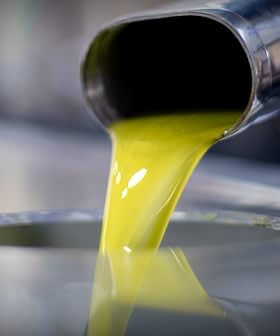Consuming Extra Virgin Olive Oil on an Empty Stomach May Provide Unique Health Benefits
New evidence suggests that taking olive oil on an empty stomach has certain health benefits, including lowering gastric acidity and helping nutrient absorption.
 21.0K reads
21.0K readsConsuming olive oil on an empty stomach can reduce gastric acidity by forming a protective film, aiding in the absorption of nutrients and supporting the work of important organs, according to a report in El Confidential. While incorporating olive oil into a daily routine is important, it is recommended to consume high-quality extra virgin olive oil in moderation, with the Mediterranean diet suggesting at least four tablespoons per day but limiting it to two tablespoons for those trying to lose weight.
According to a report in El Confidential, new evidence suggests that taking olive oil on an empty stomach provides additional benefits to taking it with food.
Consuming olive oil on an empty stomach reduces gastric acidity by forming a protective film, according to José Ramón Llorente, the president of the Spanish Society of Orthomolecular Nutrition and the National Association of Professionals and Freelancers of Natural Therapies. This helps with the absorption of vitamins and other nutrients and assists the work of several important organs.
“In popular culture, we have all heard about the benefits of olive oil, consumed especially on an empty stomach. Today we can accompany this option with the results of studies that corroborate it,” Ramón Llorente told El Confidential.
See Also:Health News“For the digestive system and the liver, its consumption on an empty stomach reduces gastric acidity because it forms a film on the gastric wall,” he added. “[It also] improves the absorption of nutrients – especially calcium, magnesium, zinc and vitamins – and optimizes the work of the liver, gallbladder and pancreas.”
When consuming extra virgin olive oil on an empty stomach, it must be high quality, meaning it will be richer in polyphenols and other nutrients.
Pharmacist and nutritionist Julieta de la Morena agreed that it is beneficial taking olive oil on an empty stomach but added that consuming olive oil with other foods and cooked still provides plenty of health benefits.
De la Morena said that the most important thing is to incorporate olive oil consumption into a daily routine.
The Mediterranean diet recommends adults consume at least four tablespoons per day. However, de la Morena said this should be limited to two tablespoons a day for people trying to lose weight.
While Americans use far less olive oil per capita than people living in Mediterranean countries, consuming only a small amount of olive oil is still beneficial.
In a study conducted over 24 years, researchers found that people who consumed at least a half-tablespoon of olive oil every day in place of less healthy fats reduced their risk of heart disease by 14 percent.









